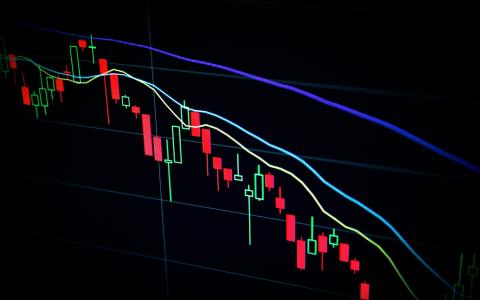
Market sentiment rather than fundamental analysis is propelling stock market gains, with potential for a recession to precipitate a downturn in the S&P 500 of up to 30%, according to seasoned market analyst Paul Dietrich, Chief Investment Strategist at B. Riley Wealth Management.
Dietrich, who has previously flagged concerns about an impending recession and bear market, notes that despite the S&P 500's remarkable ascent beyond 5,000 points for the first time, such investment behavior is misguided, primarily driven by investor excitement and the pervasive fear of missing out (FOMO).
Dietrich emphasizes the dissonance between the buoyant stock market and underlying economic indicators. Despite low unemployment rates, there's been a gradual increase in joblessness, with layoffs and terminations slightly rising to 1.6 million in December, as per Bureau of Labor Statistics data. Moreover, while consumer spending appears robust, it's increasingly reliant on credit card debt, exacerbating household indebtedness which has reached an unprecedented $17.5 trillion, as reported by the Federal Reserve.
Drawing parallels with the economic downturns of 2000 and 2008, Dietrich cautions that a repeat scenario where consumer spending sharply contracts due to maxed-out credit is likely. This is further substantiated by a significant drop in retail sales, marking the most considerable decrease in nearly a year and suggesting a potential decline in consumer resilience.
Dietrich also challenges the notion that inflation must be present to trigger a stock market collapse during a recession. Historical data show that stock markets can suffer significant losses during recessions, irrespective of inflationary pressures, with the S&P 500 experiencing an average decline of 36% at the onset of past recessions.
He starkly warns that even in a mild recession scenario, investors could see over a third of their equity investments in the S&P 500 evaporate, underscoring the gravity of the current economic and market risks. This view is echoed by other market pessimists, who cite an 85% likelihood of a recession occurring in 2024, the highest probability since the 2008 Financial Crisis, as indicated by certain economic models.
Despite these forewarnings, investor optimism remains relatively high, with 42% expressing bullish sentiments for the next six months in the latest AAII Investor Sentiment Survey. Market expectations also lean towards significant Federal Reserve rate cuts by year's end, with a 68% probability of at least a full basis-point reduction, as per the CME FedWatch tool.
This scenario illustrates a stark contrast between market expectations and the cautious outlook offered by market analysts like Dietrich, highlighting the critical need for wealth advisors and RIAs to navigate this complex landscape with informed and strategic guidance.



